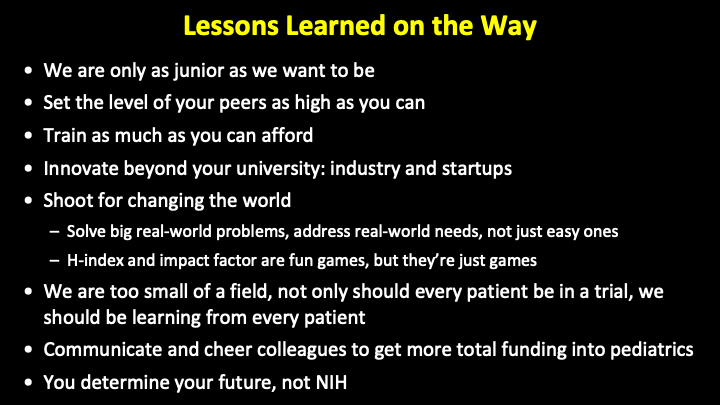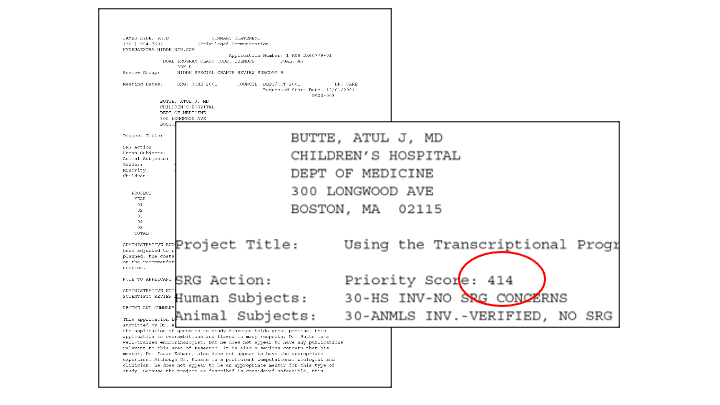Here's the slide I showed today at @UCSFChildrens Pediatrics Grand Rounds. What do the bullets mean? Here's a thread
To me, "junior faculty" should be a state of funding, NOT a state of mind! We as junior faculty should be trying to push science ahead constantly, strongly, not meekly. And if we have to push differently than our mentors, so be it!
Find your peers from across the country and across the world. Seeing that you are more productive than your neighboring lab or bench doesn't mean much, when your real "competition" might be across the world.
Train as much as you can afford. Many folks have to enter a "real world" and get a real job. But if you can, try to get as much training as you can, as an early physician scientist, extra courses, a masters degree, maybe even a PhD.
If you want to change the world, you can't just keep writing papers about it. Sometimes that means inventing or discovering things, and licensing them out of the university into a startup company. The science can continue (and scale) in a startup company.
There are a lot of important rules in spinning technologies out of academia in a right fair way, and those rules are not impossible to follow.
Try to go for solving the big problems the world needs fixing! Address big real-world problems. Even partial solutions for tough problems are better than perfect solutions for tiny meaningless problems.
Yes, I check my H-index all the time. But do recognize it's just a game. Real impact can come from really helping real patients, doctors, and families.
Pediatrics is just too small of a field → we should be learning from every single patient we see, in a systematic way, and I believe every patient should be in a trial. And i don't just mean pediatric cancer, I mean pediatric everything.
Don't be jealous or bring down your colleagues when they get the funding you didn't. Instead communicate, and cheer them on, we all need more total funding in research, especially pediatrics.
And finally, I hear too often from trainees that say they will stay in academic if their K award gets funded. I encourage them to reverse that: to stay in academia until and through the K award getting funded! It takes time, patience, and many attempts to get an NIH grant.
My first K award proposal score, back when 100 = best, 500 = worst, and they didn't triage. This probably should have been thrown out. But I'm doing ok now  . Resist, survive, then thrive.
. Resist, survive, then thrive.
 . Resist, survive, then thrive.
. Resist, survive, then thrive.
I also admit that ① I have a tendency to make everything seem easy, and ② it still takes a lot of privilege to make it in academia. Bring others up, pay it forward.
Thanks @zakkohane for continuing to be a great friend and mentor!

 Read on Twitter
Read on Twitter



